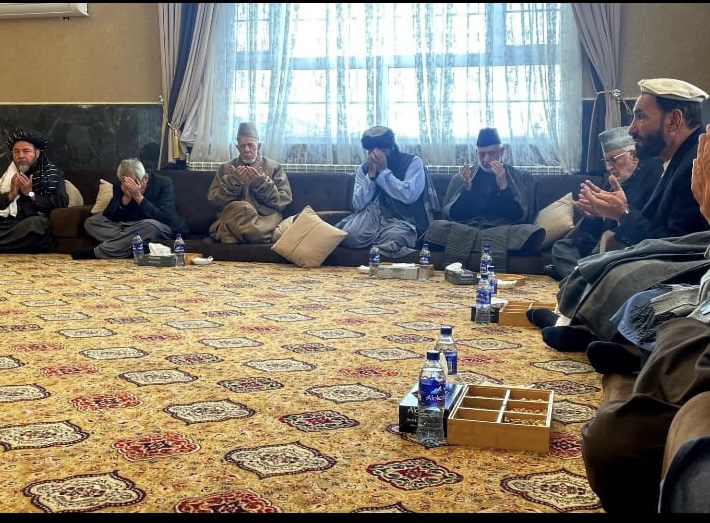RASC News Agency: Former Afghanistan President Hamid Karzai, whose tenure is often blamed for Afghanistan’s current state of turmoil due to his ethnically driven and myopic policies, now appears discontented with the extremist approach of his so-called “discontented brothers.” Despite repeated attempts over the past three years to project Afghanistan as stable and normal under Taliban rule, the unfolding realities have consistently refuted his claims. Karzai’s recent political efforts have largely revolved around lobbying for the Taliban formerly “discontented brothers” in his rhetoric, now embraced as allies worthy of international engagement. Over the past two years, Karzai has traveled to Germany, the UK, Turkey, and the UAE, lobbying foreign officials to engage with the Taliban regime.
Shortly after returning to Afghanistan, and just days following the assassination of Taliban Minister of Refugees Khalil-ur-Rahman Haqqani, Karzai visited Paktiya to extend condolences to Sirajuddin Haqqani, the Taliban’s Minister of Interior and the nephew of the deceased. Initially, Karzai’s efforts to reconcile the Taliban appeared centered on addressing tribal rivalries, particularly between the Durrani and Ghilzai factions. However, his attempts to influence the Taliban leader, Mullah Hibatullah Akhundzada, proved futile, as Akhundzada has steadfastly adhered to a rigid interpretation of “Afghanistan and Islamic values,” rejecting Karzai’s overtures.
Reports indicate that Karzai has since shifted his focus to fostering close ties with the Haqqani network, aiming to consolidate ethnic dominance in Afghanistan. According to a reliable source, Karzai has expressed significant concern over the Taliban’s hardline policies. He has repeatedly urged the Taliban leadership to reopen schools and universities for girls, emphasizing that such measures could pave the way for international recognition of their regime. However, the Taliban’s leadership, under the guise of upholding “Afghanistan and Islamic values,” has rebuffed these recommendations. The Pashtunwali code, deeply embedded in Taliban ideology, relegates women to a subordinate role, with education and workforce participation deemed dishonorable. For the Taliban, preserving this traditionalist framework outweighs the potential benefits of global acceptance.






